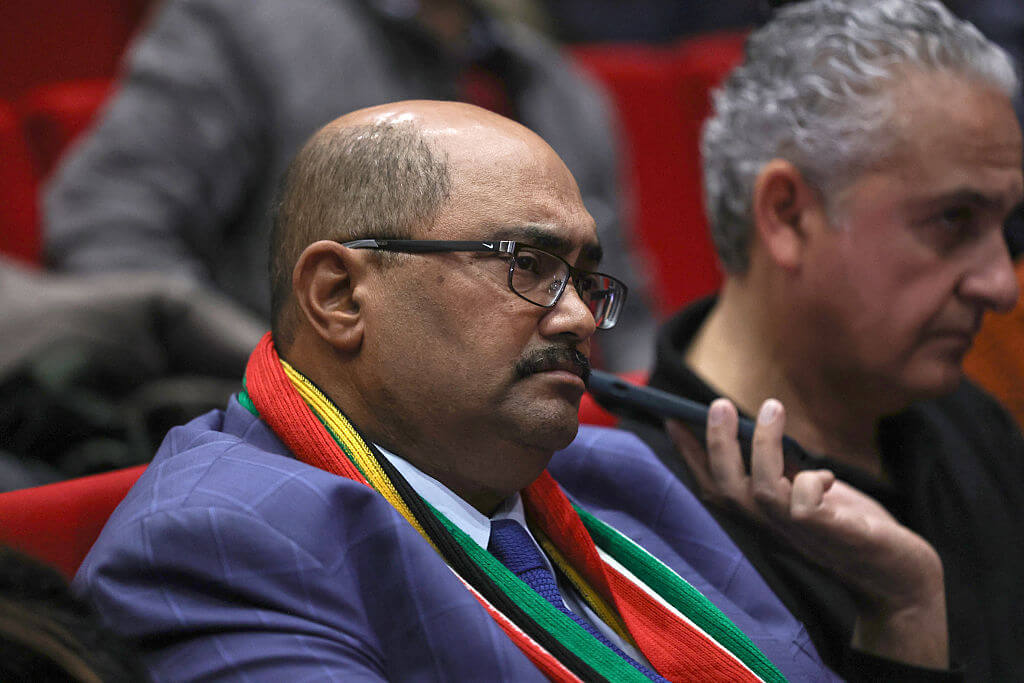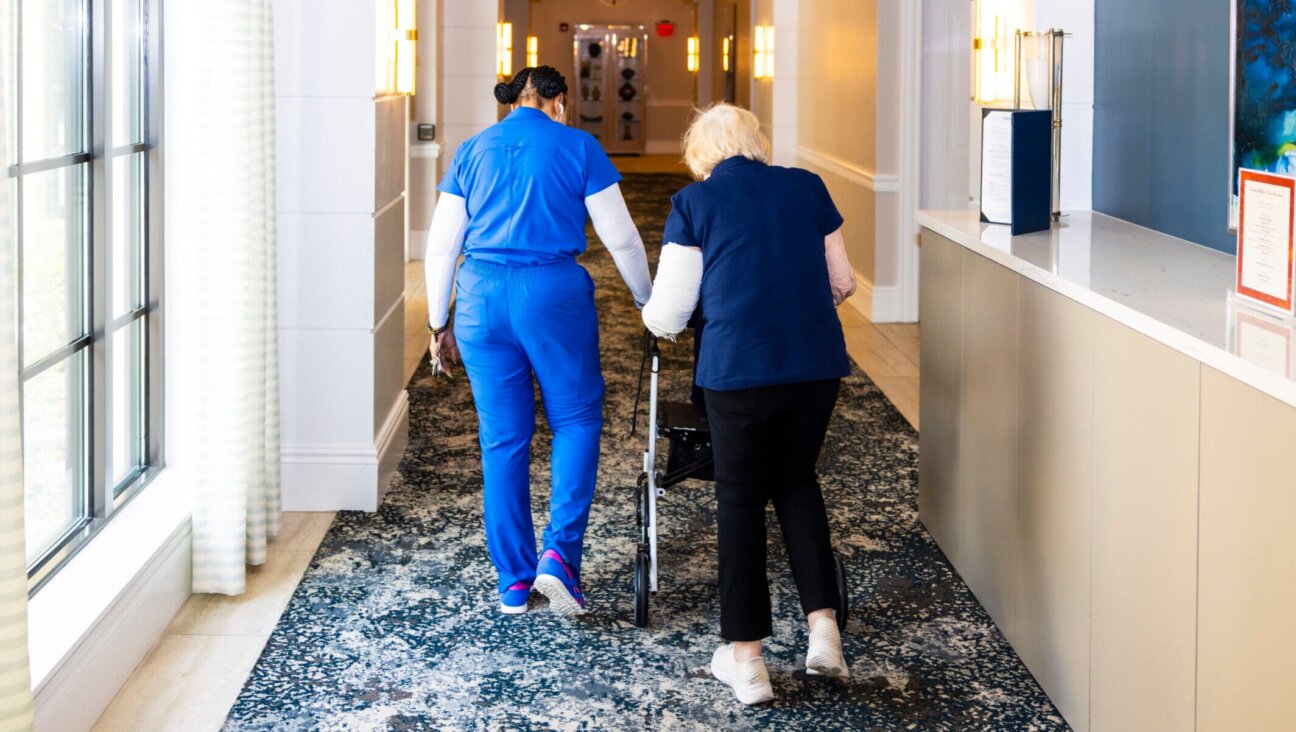London’s Jews Stay Alert But Defiant After Bombings
LONDON — With most of the United Kingdom’s 290,000 Jews living in London, it was with a sense of inevitability that the community awaited details of possible Jewish casualties, as missing commuters were listed and fatality totals were announced.
Sure enough, the first confirmed death after the bombings was that of Susan Levy, 53, a Jewish mother of two from Hertfordshire. Levy was killed on her way to work in the subway-train explosion near King’s Cross.
“We are all distraught at her needless loss, and our thoughts and prayers are also with the many other families affected by this horrendous tragedy,” said her husband, Harry, a taxi driver, who described Levy as a “much-loved wife and mother.”
Other Jewish families face an agonizing wait as authorities work to recover and identify the victims.
Miriam Hyman, 32, a freelance picture editor, called her father, John, from King’s Cross Station after the explosions began to say she was all right.
That was the last anyone has heard from her.
After a fruitless search of London’s hospitals, Hyman’s mother, Mavis, told a reporter, “We are just waiting.”
Hyman, from Hampstead Garden Suburb in North West London, was traveling to work at Canary Wharf. The attacks didn’t deter her, and this, according to her mother, was typical of her character.
“She phoned work to say she was going to be late,” Hyman’s mother said. “She was still obviously determined to get in. I think she didn’t understand the seriousness of what was going on.”
The family of Anat Rosenberg, a 39-year-old Israeli, arrived in the U.K. on Monday morning as hope of finding her alive faded. The children’s charity worker had been a passenger on the doomed No. 30 bus. Rosenberg’s British partner, John Falding, said he had been on the phone with her, talking about the travel chaos, when he heard “horrendous screams.”
Rosenberg had moved to England nearly two decades ago, partly because of her fear of terrorist attacks in Israel.
Rabbi Barry Marcus spent many years living in Israel, but he never came as close to a terrorist atrocity as he did in London.
Marcus, the rabbi of the Central Synagogue, located on Great Portland Street, was cycling across Tavistock Square on the morning of July 7 when he heard and felt “an incredible blast.” Just yards away, a bomb on the No. 30 bus had exploded.
“I saw the roof of the bus go up in a plume of white smoke and all the windows of the building nearby go through,” said the South African-born Marcus, who holds the Israel portfolio in Orthodox Chief Rabbi Jonathan Sacks’s Cabinet. “I knew in my gut it was a bomb.”
The tranquil central London square — a place devoted to peace, with a Holocaust memorial standing near a statue of Mahatma Gandhi and a cherry tree from Hiroshima — had turned into a vision of hell, strewn with broken glass and severed body parts.
Blood was splashed high up against the wall of the nearby headquarters of the British Medical Association.
“There was an incredible amount of glass and massive lumps of human flesh all over the place,” Marcus recalled. “People were almost glued to the back part of the bus, the seats in front blown into their chest cavities. There was absolute mayhem. In my mind I saw all the images of Israeli buses blown up and thought, ‘It is now here. The barbarians are now at our gates.’”
All told, at least 52 people are known to have died. With more than 20 still missing and more than 60 still being treated at hospitals, the number of deaths is expected to rise. Some 700 were wounded.
British Jewish leaders stressed that that the “7/7” attacks were not aimed at Jews. Michael Whine, an official with the Community Security Trust, said that no warnings about attacks against Jewish targets had been received before and since the bombings. He said that while the country’s terrorism alert level had been lowered in recent months — it was raised to “severe specific,” the second-highest level overall, after the explosions — the alert level of the community had remained high.
“This was an attack against Britain, not against Jews,” Whine said. Still, he added, the two are not mutually exclusive, noting that the November 2003 bombings in Istanbul hit a synagogue, the British consulate and the local branch of British bank HSBC.
Jewish observers also noted the bombings in Madrid, where a second wave of planned attacks was to include a Jewish social club, and Casablanca, where Jewish sites were targeted in the first wave of strikes.
But synagogues were filled to capacity across London for Sabbath services last weekend, just one day after the bombings, as Jews of all levels of observance flocked to synagogues to gain comfort.
“People do certainly come out in the face of tragedy to search for meaning,” said Rabbi Yitzchak Schochet of Mill Hill United Synagogue. He added, “It’s not that we have been desensitized, but we can be defiant in the face of it.”
Rabbi Michael Harris of north London’s Hampstead Synagogue embodied that defiance. Harris had his own engagement party planned for the evening of July 7. After discussing it with his fiancée, the couple decided to go ahead.
“It was very poignant and moving,” he said, “to be affirming Jewish life as a response to terror and to not let the terrorists stop us.”
The following night, his synagogue was packed with people wanting to pray together. Like the “stiff upper lip” approach so characteristic of British society, Harris said, “My sense is that the community is determined to carry on.”
















